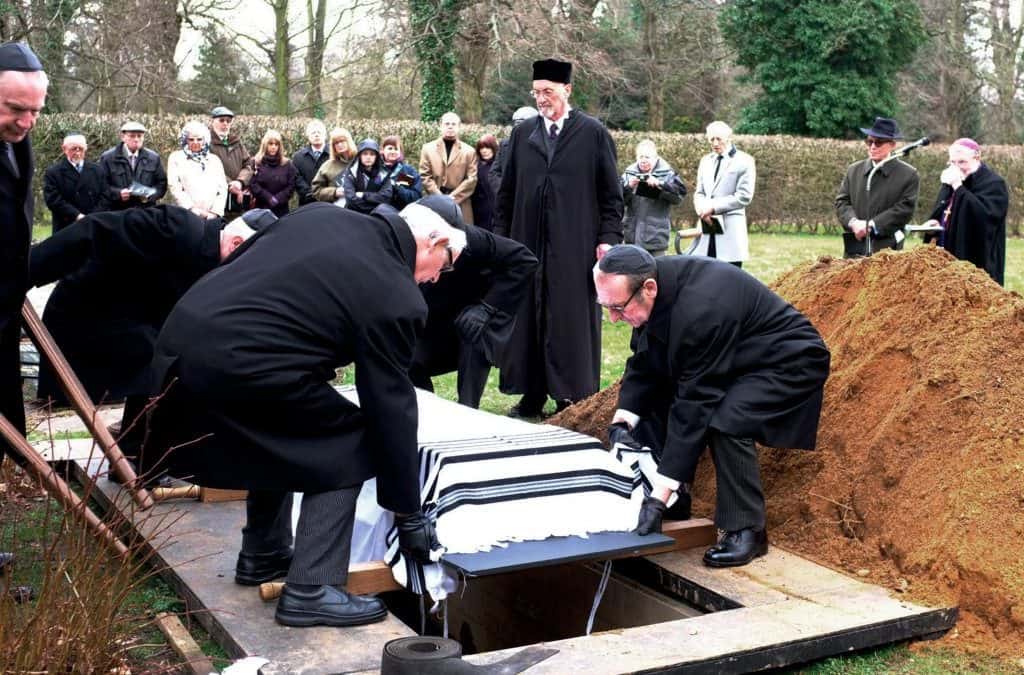The choice between cremation and burial is a complex decision that involves spiritual, ecological, and cultural aspects, especially within the Jewish tradition. As interest in sustainable funeral practices grows, the perception of cremation as a more environmentally friendly option is being questioned. On the other hand, the traditional Jewish burial offers an alternative that respects nature and keeps ancestral traditions alive, providing comfort to both the deceased and their families.
Jewish Funeral Traditions: Between Cremation and Ecological Burial
Currently, cremating or burying has become an increasingly debated dilemma.
Various social currents—including the Jewish community—have presented conflicting approaches regarding the religious, environmental, and emotional implications each alternative entails. What considerations should guide our choice?
This question gains relevance when we analyze the spiritual components, ecological burden, and cultural significance embedded in funeral rites.
Moreover, the growing interest in sustainable practices drives people to rethink their decisions in light of evidence suggesting that cremation is not always the most planet-friendly alternative. Traditional Jewish burial, on the other hand, offers a model of simplicity and respect for nature that many environmentalists value.
The Rise of Cremation
In the United States and Europe, at least 30% of Jewish deaths are resolved through cremations, a percentage that is increasing.
The reasons include economic concerns, the apparent speed of the process, and the reduction of guilt for those who do not live near the grave. However, there are nuances that question the idea that incineration is more economical or practical: hidden costs, ash management, and uncertainties about their long-term fate are factors that complicate the decision.
Nevertheless, numerous reports—including studies by the Swedish Environmental Protection Agency—warn that cremation consumes large amounts of fossil fuels and releases toxic substances, including mercury.
In fact, the United States Environmental Protection Agency (EPA) highlights the need to thoroughly analyze the atmospheric and energy impacts of this process. The traditional Jewish practice prohibits the use of metal caskets and embalming, which significantly reduces the environmental impact, thereby promoting a more ecological form of inhumation.
Cultural Implications
The mobility of families and the difficulty in maintaining regular visits to a cemetery may seem like solid arguments in favor of cremation.
However, the question arises: what happens when the ashes of a loved one are handed over to family members who then move or lack adequate space?
Jewish traditions propose a burial that ensures the dignity of the body and a definitive resting place, avoiding conservation complications or potential forgetfulness in the future.
At the same time, from a Jewish perspective, the body and soul form a union that does not instantly dissolve after death. According to Jewish mysticism, the soul feels close to the body, so witnessing its burning would be heartbreaking.
Burying not only responds to nature, but also facilitates the soul’s calm return to its divine source, a principle that, according to tradition, favors the comfort of the deceased and those who survive them.
Obligation to Bury in the Jewish Tradition
In Deuteronomy 21:23—even in the case of an executed criminal—it establishes the norm of inhumation, reinforcing the idea that “burying the deceased” is a fundamental mandate.
Throughout the centuries, this tradition has been diligently preserved, as Jewish law considers burial an unbreakable duty. It is enough to remember that the high priest, who used to avoid contact with death, was obliged to intervene if there was no other person capable of burying the deceased.
Consequently, the rituals related to burial are not designed only to offer comfort to the bereaved but also to address the “needs of the soul” of the deceased. From the Kaddish to shivá (the mourning period), each step is aimed at guiding the soul in its transition.
Those who choose cremation often do so under the idea of simplifying preparations or reducing costs, although they may underestimate the emotional and spiritual depth linked to traditional sepulture.
Finally, direct cremation, contracted online or via phone, may result in a reduced expenditure. Even so, various funeral homes warn that when adding additional services such as ceremonies and transportation, the price approaches that of a conventional burial.
The decision to opt for the cheapest modality does not always satisfy the desire to pay an adequate tribute and can lead to an imbalance between economic savings and the need to honor the memory of the loved one.
The Future of Burial
Meanwhile, the so-called “ecological burials” propose a solution more in tune with nature than cremation.
The use of simple and biodegradable coffins, without chemicals for embalming, fulfills both the religious dimension of Judaism and the commitment of environmentalists to avoid contamination. This option allows bodies to reintegrate into the Earth’s life cycle, symbolizing a return to the mother that nurtures all existence.
In a world where funeral practices are conditioned by speed and technology, it is advisable to pause and reflect on the legacy we leave behind. Burial, according to the Jewish perspective, represents respect for nature and life, while also demonstrating the spiritual connection between body and soul.
Indeed, burying reflects the humility of recognizing human finitude and the will to honor the memory of our loved ones in a final act of love.
Therefore, when choosing between cremation or burial, it is valuable to weigh ancestral values, ecological awareness, and the importance of a ritual that transcends the present.
Sending a loved one back to the earth implies leaving a mark of compassion, a sign of responsibility towards the environment, and a living bond with our cultural roots. It is not merely a matter of costs or practicality: it is the last opportunity to offer an act of surrender, reverence, and gratitude in the face of time’s relentless passage and the greatness of nature.
Maestro Ruada – Jewish News





